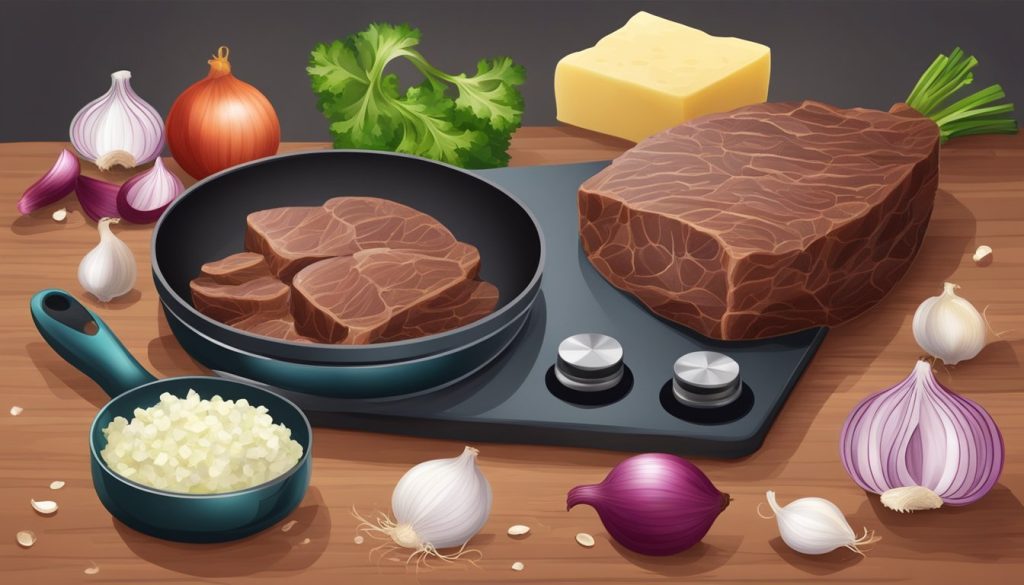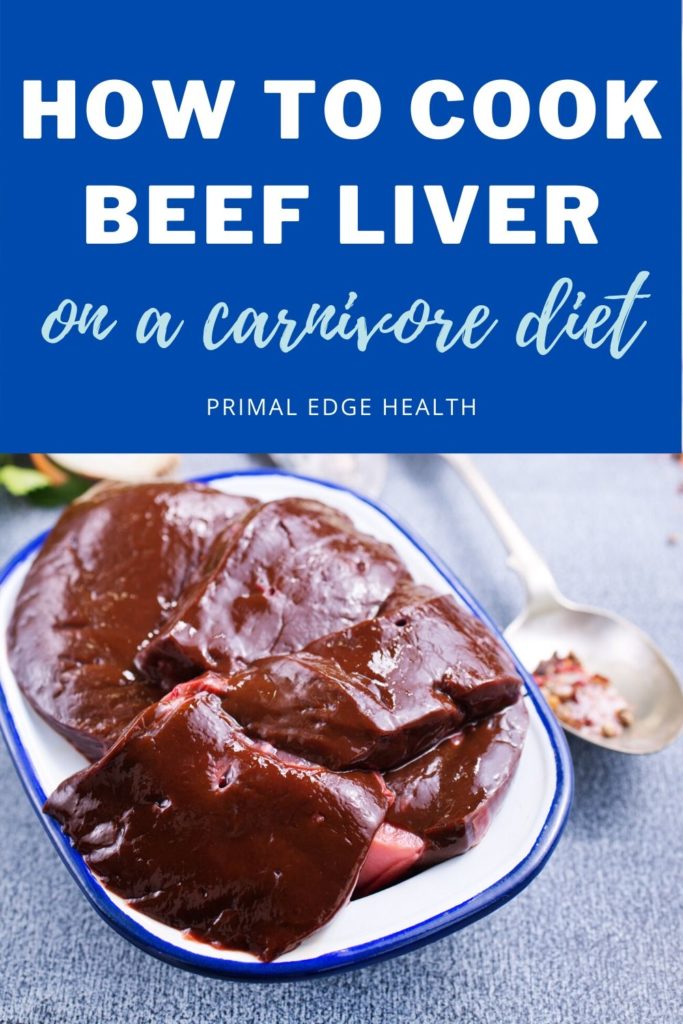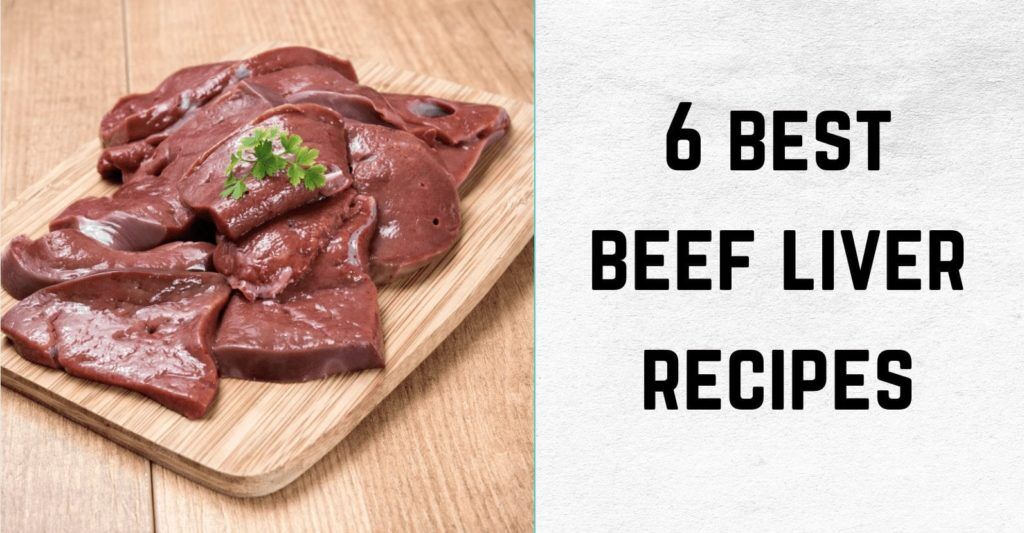Are you looking to add more variety to your carnivore diet? If so, then you’re in luck! In this complete guide, we will take you through the process of preparing delicious liver recipes that are perfect for the carnivore lifestyle. Whether you’re a seasoned carnivore looking to switch things up or a newbie eager to explore new culinary horizons, this guide has got you covered. Get ready to discover the wonderful world of carnivore diet liver recipes and take your meat-based meals to a whole new level.

What is the Carnivore Diet?
The Carnivore Diet is a dietary approach that involves consuming only foods derived from animal sources. It eliminates all plant-based foods, including fruits, vegetables, grains, and legumes. The focus is primarily on consuming meat, fish, and other animal products to meet nutritional needs. The Carnivore Diet has gained popularity in recent years as a way to improve health, lose weight, and enhance athletic performance.
Definition of the Carnivore Diet
The Carnivore Diet is a high-fat, low-carbohydrate, and zero-fiber diet that emphasizes the consumption of animal-based foods. It eliminates all forms of plant-based foods, including fruits, vegetables, and grains. The goal is to allow the body to primarily rely on fat and protein for energy, while minimizing carbohydrate intake.
Why Include Liver in the Carnivore Diet?
Importance of Liver in the Carnivore Diet
Liver is a highly nutritious organ meat that offers numerous health benefits. It is considered a superfood due to its rich nutrient profile. Including liver in the Carnivore Diet can provide essential vitamins, minerals, and other vital nutrients that may be lacking from the other meat sources.
Nutritional Benefits of Liver
Liver is an excellent source of essential nutrients that are important for overall health and well-being. It is packed with high-quality protein, vitamin A, vitamin B12, vitamin B6, iron, zinc, and copper. These nutrients play a crucial role in supporting brain function, red blood cell production, energy metabolism, immune system function, and maintaining healthy skin and hair.
Vitamins and Minerals Found in Liver
Liver is a nutritional powerhouse, containing significant amounts of several key vitamins and minerals. It is rich in vitamin A, which is essential for vision, immune function, and cellular growth. Liver is also a great source of B vitamins, including vitamin B12, which is crucial for red blood cell production and neurological function. Additionally, liver is high in iron and zinc, which are important for oxygen transport, immune system function, and growth and development.
Choosing the Right Liver for Recipes
Types of Liver Suitable for the Carnivore Diet
When selecting liver for Carnivore Diet recipes, it is essential to choose from suitable types that align with the principles of the diet. The most common options include beef liver, chicken liver, lamb liver, and pork liver. All these types of liver offer similar nutritional benefits and can be used interchangeably in recipes.
Selecting High-Quality Liver
To ensure you are getting the best quality liver, it is important to source it from reputable suppliers or local farms. Look for liver that is fresh, firm, and has a deep reddish-brown color. Avoid liver that appears discolored, has a strong odor, or feels slimy to the touch. Opting for organic liver is also recommended as it tends to have fewer toxins and a higher nutrient content.
Organic vs Conventional Liver
Organic liver is produced from animals that have been raised without the use of antibiotics, hormones, or synthetic pesticides. Choosing organic liver can minimize your exposure to potentially harmful substances and ensure a more natural and nutrient-dense product. However, if organic liver is not readily available, conventional liver that meets high safety standards can still be a suitable option.
Preparation and Cooking Methods for Liver
Tips for Preparing Liver
Before cooking liver, it is important to properly prepare it to enhance its taste and texture. Start by rinsing the liver thoroughly under cold water to remove any excess blood or impurities. Then, pat it dry with paper towels. Remove any visible connective tissue or membranes, as they can make the liver chewy. It is also a good idea to slice the liver into evenly sized pieces to ensure even cooking.
Marinating Liver for Improved Taste and Tenderness
To improve the taste and tenderness of liver, marinating can be a great option. Marinating helps to enhance the flavor while also tenderizing the meat. A simple marinade can be made using ingredients like olive oil, lemon juice, garlic, and herbs. Allow the liver to marinate in the refrigerator for at least 30 minutes, or even overnight, for optimal results.
Best Cooking Methods for Liver
Liver can be cooked using various methods, depending on personal preference and desired texture. Some popular cooking methods include pan-frying, grilling, broiling, and baking. These methods help to retain the natural flavors and juices of the liver while creating a delicious crust or caramelization on the outside. It is generally recommended to cook liver quickly over high heat to prevent it from becoming tough and chewy.
Avoiding Overcooking Liver
Overcooking liver can result in a tough and rubbery texture, which may not be appealing to some individuals. It is important to cook liver only until it reaches medium doneness, with a slightly pink interior. Overcooking can also lead to a strong, unpleasant odor. Sticking to the recommended cooking times for liver will help ensure you achieve the perfect texture and taste.

Delicious Liver Recipes for the Carnivore Diet
Classic Liver and Onions
One of the most popular liver recipes is the classic liver and onions. Start by sautéing sliced onions in a pan until soft and caramelized. Set them aside and cook thinly sliced liver on medium-high heat until browned on both sides. Serve the liver on a bed of caramelized onions for a delicious and comforting meal.
Liver Pate
Liver pate is a luxurious and rich spread that can be enjoyed as a snack or appetizer. Begin by cooking the liver with butter, garlic, and herbs until cooked through. Transfer the liver mixture to a food processor and blend until smooth. Chill the pate in the refrigerator for a few hours to allow the flavors to develop. Serve with crusty bread or keto-friendly crackers.
Liver and Bacon Skewers
Liver and bacon skewers are a delicious and savory option for a meaty meal. Start by cutting liver and bacon into bite-sized pieces. Thread the liver and bacon alternately onto skewers and grill them until cooked through. This recipe provides a smoky and flavorful combination that is sure to satisfy your carnivorous cravings.
Liver Stir-fry
Liver stir-fry is a quick and easy way to incorporate liver into your meals. Thinly slice the liver and stir-fry it with vegetables of your choice, such as bell peppers, onions, and zucchini. Add your favorite seasonings or sauces, such as soy sauce or Worcestershire sauce, to enhance the flavors. Serve the liver stir-fry over cauliflower rice or enjoy it on its own.
Liver and Eggs
Liver and eggs make for a hearty and nutritious breakfast or brunch option. Start by pan-frying liver and setting it aside. In the same pan, cook eggs to your preferred doneness. Serve the eggs on a plate alongside the liver for a satisfying and protein-packed meal.
Pan-seared Liver with Herbs
Pan-seared liver with herbs is a simple and flavorful option for enjoying liver. Season the liver with salt, pepper, and your choice of herbs, such as rosemary or thyme. Pan-sear the liver in a hot skillet with butter or ghee until cooked to your desired doneness. This recipe highlights the natural flavors of the liver, complemented by the aromatic herbs.
Liver Curry
Liver curry adds a spicy and exotic twist to traditional liver recipes. Sauté onions, garlic, ginger, and spices like turmeric, cumin, and coriander in a pan. Add liver pieces and cook until well coated with the spice mixture. Pour in coconut milk and simmer until the liver is cooked through and the flavors are well combined. Serve the curry over cauliflower rice or with naan bread.
Additional Tips and Variations
Adding Herbs and Spices for Flavor
Experimenting with different herbs and spices can add depth and flavor to your liver recipes. Consider using herbs like thyme, rosemary, parsley, or cilantro to enhance the taste. Spices such as paprika, cayenne pepper, or curry powder can add a kick of heat and complexity to your dishes.
Incorporating Liver into Other Dishes
Liver can be a versatile ingredient that can be incorporated into various dishes. Add diced liver to meatballs, burgers, or meatloaf for an added nutritional boost. You can also blend liver into soups or stews for a rich and hearty flavor. Be creative and think outside the box to discover new ways to enjoy liver in your favorite recipes.
Experimenting with Different Liver Cuts
Different cuts of liver can have varying flavors and textures. Consider trying different types of liver, such as calf liver or duck liver, to experience unique taste profiles. Each type of liver can offer a distinct culinary experience and opens up a world of possibilities when it comes to creating delicious carnivore diet liver recipes.
Pairing Liver Recipes with Complementary Side Dishes
When serving liver recipes, it is important to choose side dishes that complement the flavors and textures. Opt for low-carb options like roasted vegetables, salad greens, or cauliflower mash. These side dishes not only enhance the overall taste experience but also provide additional nutrients and fiber to your carnivore diet.

Safety Considerations and Storage
Ensuring Liver is Properly Cooked
It is crucial to ensure that liver is properly cooked to minimize the risk of foodborne illnesses. Cook liver until it reaches an internal temperature of at least 70°C (160°F). This temperature ensures the destruction of any harmful bacteria or parasites that may be present in the liver.
Avoiding Cross-Contamination
To prevent cross-contamination, it is essential to practice good food safety measures when handling and preparing liver. Avoid using the same utensils or cutting boards for raw liver and other foods to prevent the transfer of harmful bacteria. Thoroughly wash your hands, utensils, and surfaces with soap and hot water after handling raw liver.
Storing Liver in the Refrigerator
To maintain the freshness and quality of liver, it should be stored properly in the refrigerator. Keep the liver in its original packaging or transfer it to an airtight container or zip-top bag. Place it in the coldest part of the refrigerator, such as the meat drawer or bottom shelf, and consume it within 1-2 days.
Freezing Liver for Long-Term Storage
If you have excess liver or want to stock up for future use, freezing is a great option. Wrap the liver tightly in plastic wrap or aluminum foil, ensuring there are no exposed areas that can lead to freezer burn. Place the wrapped liver in a freezer-safe bag or container, and label it with the date. Frozen liver can be stored for up to 3-4 months.
FAQs about Carnivore Diet Liver Recipes
Can I Eat Liver Every Day?
While liver is highly nutritious, it is advisable to consume it in moderation. Liver is rich in certain vitamins and minerals, such as vitamin A, that can be harmful in excessive amounts. Consuming liver 1-2 times a week is generally considered safe and provides ample nutritional benefits.
Can I Consume Liver if I Have Certain Health Conditions?
Individuals with certain health conditions, such as iron overload disorders or vitamin A toxicity, should exercise caution when consuming liver. These health conditions can be aggravated by the high levels of iron or vitamin A found in liver. It is best to consult with a healthcare professional before including liver in your diet if you have any specific health concerns.
Can I Consume Liver While Pregnant or Breastfeeding?
Liver can be a valuable addition to the diet during pregnancy and breastfeeding due to its nutrient density. However, it is crucial to consume liver in moderation and avoid excessive consumption of vitamin A, which can harm the developing fetus. It is recommended to consult with a healthcare professional for personalized advice regarding liver consumption during these phases.
How Do I Source High-Quality Liver?
To source high-quality liver, consider purchasing from local farms or reputable suppliers that prioritize animal welfare and organic practices. Visiting farmer’s markets or joining community-supported agriculture (CSA) programs can also provide access to high-quality, locally sourced liver. Asking questions about the animal’s diet, treatment, and living conditions can ensure you are getting the best quality liver.

Conclusion
Including liver in the Carnivore Diet can offer numerous health benefits and enhance the nutritional profile of the diet. Liver provides essential vitamins, minerals, and other vital nutrients that contribute to overall well-being. With a wide range of delicious liver recipes available, incorporating liver into your Carnivore Diet can be both nutritious and enjoyable. Whether you choose classic liver and onions or experiment with liver curry, these recipes provide a tasty and nutrient-dense way to embrace the Carnivore Diet with liver. So, why not give it a try and enjoy the many benefits of liver while following the Carnivore Diet?